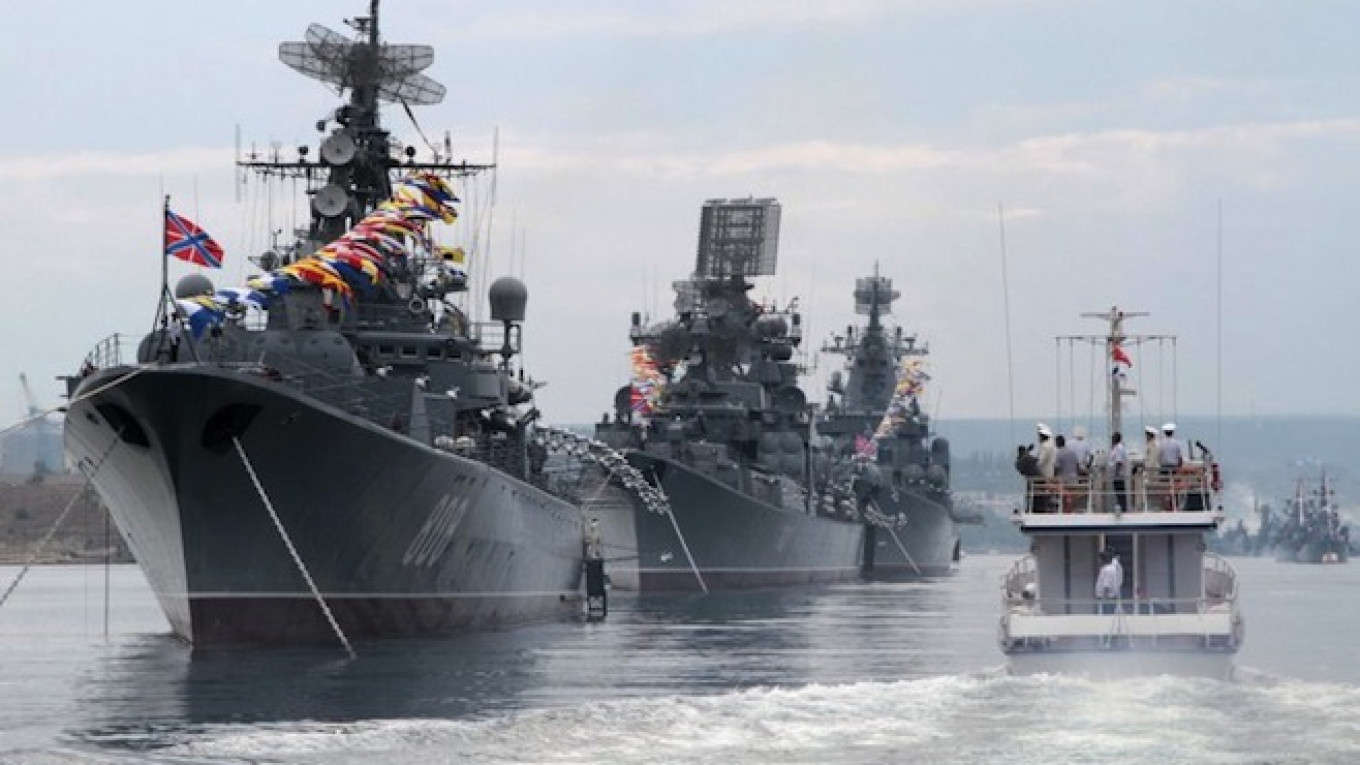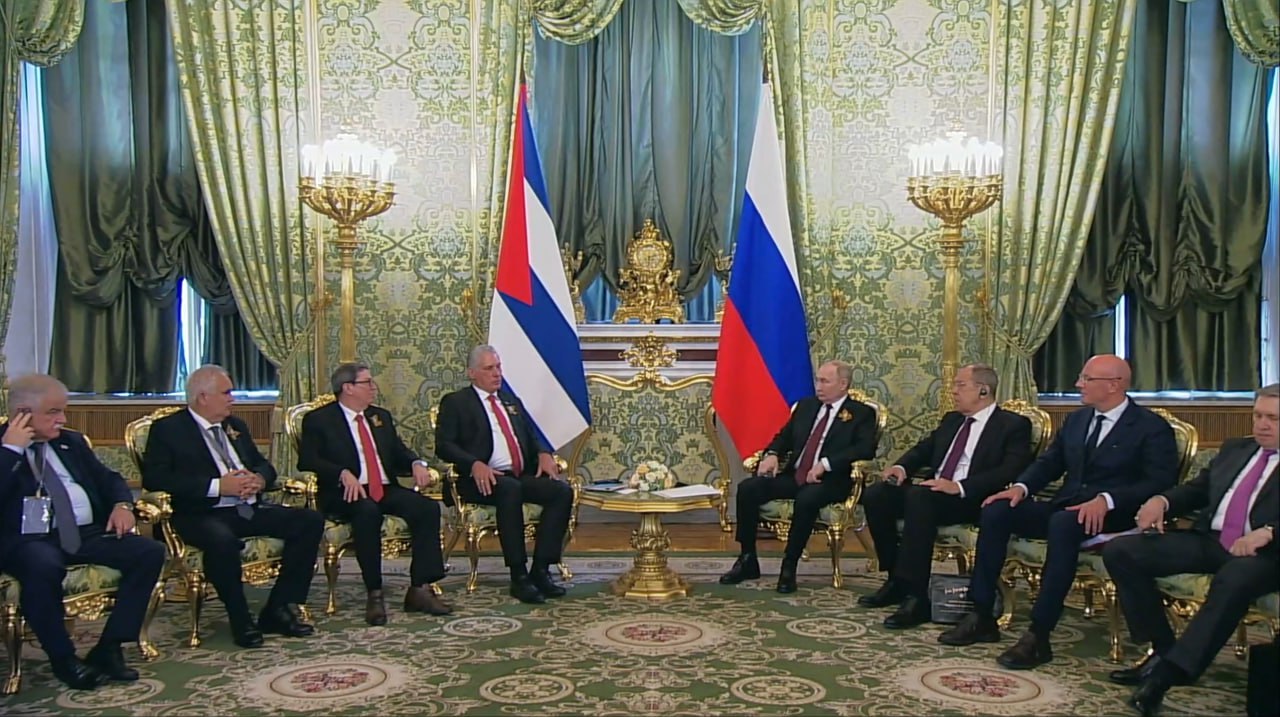Tensions continue to escalate between Moscow and Washington over the Russian advancement in Ukraine. Moscow has allegedly found another way to needle Washington: send troops and equipment to its backyard for military drills.
A senior US official informed the media on June 5 that Russia intended to send battle vessels into the Caribbean this summer as part of naval operations that would probably involve port calls in Cuba and potentially also in Venezuela.
“As part of Russia’s regular military exercises, we anticipate that this summer, Russia will conduct heightened naval and air activity near the United States. These actions will culminate in a global Russian naval exercise this fall,” the official said.
The official told a small group of reporters that, although the US Navy will closely monitor the drills, the country does not consider the maneuver, which involves a few ships and aircraft, as a threat.
He clarified that the deployments would be part of routine naval activity. “We are not concerned by Russia’s deployments, which pose no direct threat to the United States. We are expecting that Russia will temporarily send combat naval vessels to the Caribbean region, and these ships will likely conduct port calls in Cuba and possibly Venezuela. There may also be some aircraft deployments or flights in the region,” he said.
🚨BREAKING: Russia to send combat vessels to Caribbean for naval drills, likely including Cuba & Venezuela port calls – US official.
⚠️US not seeing it as threat but will monitor exercises.
Cuban Missile Crisis Repeat pic.twitter.com/yMZ1v84aAi
— 🇺🇸🇮🇱Combat_Crusader🇺🇸🇮🇱 (@Combat_Crusader) June 6, 2024
However, the official categorically stated that the Russian military activity globally has intensified amid rising tensions between the two sides since it launched the invasion of Ukraine. ”This is about Russia showing that it’s still capable of some level of global power projection,” the official said.
The official mentioned that these deployments incur expenses for the Russian Navy, which struggles to maintain readiness and carry out deployments due to an aging fleet.
According to the authorities, although Russia did not officially inform the US about the drills amid simmering tensions, the US Navy has been monitoring the movement of Russian ships. While countries usually alert one another to prevent miscalculation, Russia chose not to involve the US in the process.
It is not uncommon for Russia, like other countries, to conduct military drills in international waters that are not under the sovereignty of any country. For instance, the US and almost 20 other NATO states are expected to kick off BALTOPS 24, a significant naval and aviation drill, in the Baltic Sea, which is very close to Russia.
Lithuanian Defense Ministry announced the start of the largest exercises in the Baltic Sea BALTOPS 24
More than 30 warships have already arrived in the port of Klaipeda. In total, about 9 thousand military personnel, more than 50 ships and 80 airplanes from 20 countries of the… pic.twitter.com/blNamYVsui
— NEXTA (@nexta_tv) June 5, 2024
Russia held drills in different regions around the world even before the Ukraine invasion was launched in February 2022. This included its drills simulating the protection of the Arctic—of which the US and other NATO states are stakeholders—in 2022. Russia also conducted naval drills in the Mediterranean Sea in October 2022. In fact, Russia even conducted joint war games in Venezuela in 2022. And, last fall, the Russian Pacific Fleet conducted major naval drills off Siberia and close to Alaska.
Further, this is not the first time Russian ships and troops would be present in the Caribbean. However, this particular deployment is significant given that Russian President Vladimir Putin recently pledged to respond with “asymmetrical steps” elsewhere in the world in response to Joe Biden’s decision to allow Ukraine to use weapons supplied by the United States to strike inside Russia to defend Kharkiv.
It may be noted that Russia has been bolstering ties with two Caribbean countries — Cuba and Venezuela, both embroiled in tensions with the United States for several years — in recent times.

Russian Friendship With The Caribbeans
Although Russian military drills in the Caribbeans may not be a big deal for the US, the port calls at Cuba and Venezuela could pique the interest of the United States.
Cuba is among the few countries that has not joined the international sanctions regime on Russia for its invasion of Ukraine. On the contrary, the relationship between the two states has improved since February 2022. Cuban President Miguel Diaz-Canel had earlier criticized the sanctions: “We are condemning, we are rejecting the expansion of NATO towards Russia’s borders.”
Along with new initiatives, the Cuban President also announced a new era of economic cooperation with Russia. Further, a Russian naval ship berthed in Cuba in July 2023.
A Cuban delegation is also currently visiting Russia. To top it all off, Cuban deputy prime minister Ricardo Cabrisas Ruiz said that Cuba would continue to count on Russian parliamentary support.

Some reports have been circulating that Russians have been recruiting Cubans to fight against Ukraine since the second half of last year.
Another country that has strengthened cooperation with Russia is Venezuela. The relationship goes back several years and, Russia has traditionally condemned what it refers to as US interference. For instance, in 2019, the Russian Foreign Ministry said, “We have warned against all interference in Venezuela’s domestic affairs including the use of force threatened by Washington and which is in violation of international law.”
Venezuelan President Nicolas Maduro has charged the West on several occasions for trying to “dismember” and “demolish” Russia by intensifying the war in Ukraine. He called the Western sanctions against Russia “madness” and referred to the Ukrainian leadership as a “neo-fascist elite.”
In February this year, Russian Foreign Minister Sergey Lavrov arrived in Venezuela on a Latin American tour that included Cuba and Brazil and called to “reinforce and strengthen the entire strategic map of comprehensive cooperation” between the two countries under their “unbreakable” friendship.
🚨Update: Western countries are responsible for installing the neo-Nazi regime in Ukraine and plotting aggression against Russia, but now must participate in peace negotiations, Venezuelan President Nicolas Maduro said on Venezolana de Television! pic.twitter.com/DnwNCIO5bz
— US Civil Defense News (@CaptCoronado) May 14, 2024
The Russian Minister also noted that Moscow would back Venezuela’s efforts to become a member of the BRICS organization — founded in 2009 by South Africa, Brazil, Russia, India, and China — to challenge the political and economic hegemony of the US and Europe.
“We are aware of the interest of our Venezuelan friends in rapprochement with BRICS. As chair of the association this year, Russia will contribute to this,” Lavrov said during the meeting.
This, however, has not gone down well with the US, which considers the Southern American region and the Caribbean not only its traditional sphere of influence but also regions that must be secured for the US’s overall security.
- Contact the author at sakshi.tiwari9555 (at) gmail.com
- Follow EurAsian Times on Google News




